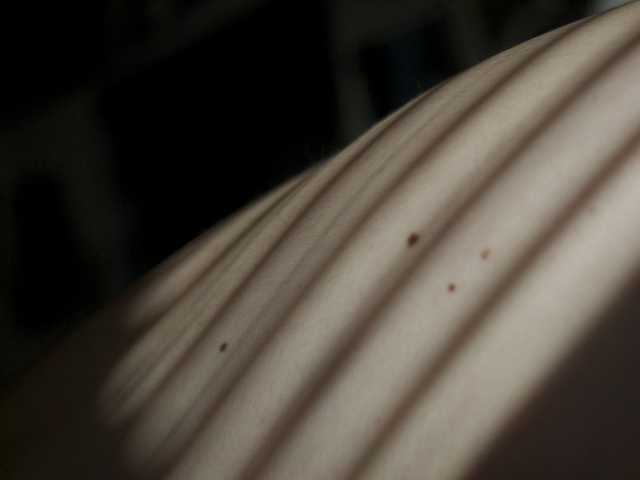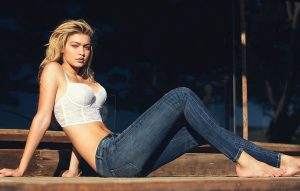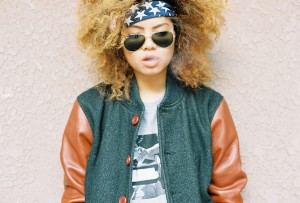
The Minus of Plus-Size Activism
by Vincent Chabany-Douarre | May 8, 2017
The fact that the fashion industry holds women to a precise set of standards and excludes those who fail to meet them has become a commonplace complaint. We’ve all seen campaign shoots, or catwalk photos, and we’ve all heard at least one person ask, “why are they all so skinny?” The question of manufacturing better quality and more various clothing for plus-size women is common sense: if there is a demand, there will be supply. But the question of plus-size models is less straight-forward. Models like Tess Holliday argue that their mere modeling is a radical act, but the movement has always been short-sighted.
The argument in favor of ‘plus-size’ models is that we will become a better society by refusing to marginalize a portion of our population for not fitting into our standards of beauty. This argument is sound within the frame of this question: why should only certain types of people be seen as beautiful? The discourse which underpins the movement is one that wants to change standards of beauty, it decries them as Eurocentric and exclusionary, and so calls for them to integrate a wider spectrum of women. But the question itself is wrong. What we really should be asking is how do we stop idolizing the value of beauty. Inserting yourself into a corrupt exclusionary system does not fix the system: it simply detracts from the need to challenge it in its entirety.
What these activists seem to want is for each and every one of us to feel beautiful. And, of course, this gain of beauty is framed as a radically political act. Then, since one is personally empowered, the ‘personal is political’ equation transforms this feeling into actual power. But the ‘personal is political’ theory only applies in certain situations and has never been an excuse for narcissism, but rather a rallying cry for communal action. As radical feminist Carol Hanisch, who allegedly coined the phrase, put it: “one of the first things we discover [in feminist groups] is that personal problems are political problems. There are no personal solutions at this time. There is only collective action for a collective solution.”
Say a bigger woman feels beautiful. How is it a form of collective action, for a collective solution? How can she transfer this worth to her community? The equation caves. Calling the personal political implies that each individual within a minority group that, throughout their life, empowers themselves, will subsequently empower the community. Kellyanne Conway is, arguably, incredibly empowered as one of few women in a male-dominated field. Though she may act as a role model, this form of ‘empowerment’ is indirect and unreliable. It’s not only that, but to articulate one’s activism over whether one looks ‘hot’ or not seems so decadent. How many people know of Ashley Graham, who is above all else a capitalist, and how many know of Dr Rebecca Gomperts, who provides women with safe abortions in countries where there are none, by taking them out to international waters?
The body positivity movement works hand in hand with the idea that facilitating the male gaze can be a direct feminist act. Of course, wanting sex is not anti-feminist in the slightest, but it is also not a feminist act–it is merely an action. As feminist critic Jessa Crispin would say: “There’s a certain segment of feminists who are like “pole dancing classes are so empowering” and “bikini waxes are so empowering blah blah blah.” No, it’s not. You’re trying to make yourself available. Just say that! Just say it! I don’t understand why people need to cloak certain things under a feminist label that are clearly not feminist. But they do it in order to not feel cognitive dissonance. You can have two conflicting ideas. You can want to be fuckable and you can want to destroy the patriarchy. I have this same conflict. Everyone does.” As Crispin explains, not everything is a feminist act. Feminism fights to bring you choices. Exercising these choices does not mean you are furthering the cause, or moving it backwards. But, as Crispin said, own it!
This is where plus-size models come in once more: while they are mythologized as political protestors, they too can act as promoters of patriarchal influence; Ashley Graham’s cover of the Sports Illustrated 2016 swimsuit edition, for example. The argument that Graham is “doing this for herself” is an example of the ‘personal is political’ argument and its short-comings. Given the Sports Illustrated reader demographic (two-thirds male) and the fact that Swimsuit Illustrated is mostly known as pre-internet softcore porn, if Graham shows anything, it is that we are celebrating yet another way for the male gaze to define women. Plus-size activists should own that this is what they vie for: the recognition of the male gaze. Who doesn’t want to be wanted?
Our movements have become toothless: at times, I catch myself thinking that coaxing someone into admitting they’d have sex with someone else, all because it’d be impolite not to, is a radical act, all of which detracts from the very real problems at hand. The inclusion of trans women in shows such as Transparent or Orange is the New Black is fantastic, portraying these women’s struggles in a hostile society on the small screen. But you can push me, and push me, and I will never agree to celebrate a trans beauty constant such as Miss International Queen. A ceremony whose only focus is to judge and grade women’s appearances is now suddenly considered empowering because it allows us to evaluate how trans women measure up against rigid gender norms. It rewards those who obey.
It’s true, we must acknowledge forms of womanhood other than the white, cis experience; intersectional feminism seems to have a lot to say about beauty too. Historically, beauty has been white, as white people have almost always benefitted from economic and political hegemony. These days, a regular refrain is to teach non-white children that they are beautiful. I understand that it can be a devastating experience to grow up as an outcast because of the color of your skin, but shifting the focus onto beauty as a gateway to societal acceptance obscures the fact that we should respect people for being people, and then value them for their moral qualities, or kindness, or intelligence. This is an opinion shared by Zadie Smith, who told the New York Library Podcast when discussing mainstream (i.e. white) beauty magazines: “I grew up with a mother with no interest in any of that… makeup, magazines, anything, and I was really happy. My feeling is, to be honest, I don’t really want to be in those magazines. I don’t really like these magazines. And I know it’s a matter of representation, that’s meant to be equality, but do you want to be equal with something that makes so many people miserable?”
There’s something so facile about body positivity, so reluctant to own its needs, so eager to look like political activism when simply looking for integration. The body positivity movement, seems unable to challenge its own subscription to patriarchal and capitalist values. If social activism is all about integration then we can consider having women in Wall Street a victory, so that both genders can take advantage of the poor. Amy Poehler’s mentions in her biography, Yes Please, that in her youth she hated how she looked, before concluding with: “there is a moment in your life when you have some say as to what your currency is going to be. I decided early on it was not going to be my looks.” We must stop treating unattractiveness as the biggest loss of currency there is. Drop the mantras and the indulgent excess of self-love. Focus on what you’re good at, on what you can offer the community. Amy Poehler focused on what made her great, and she became the creator of one of our best TV comedies, Parks And Recreation. She, as fellow comedian Casey Wilson too, has admitted she doesn’t love her looks, yet they own their political power. We must stop lamenting how some do not fit into a rotten narrative, and instead head into an entirely different one.
Highlighting the problem is necessary, but so are drawing out concrete solutions. How do we dismantle the importance of beauty? Fashion is a good place to start, by focusing on preserving its artistic merit. Phoebe Philo, who works for Céline, stated in 2014: “I have no problem with a woman wearing anything as long as she has chosen to wear it for herself. But I do think there are too many images of women that are sexualised and too many examples of women dressing for other people and disempowering themselves in the process.” There is something irresistible about this statement; Céline’s aim is not to make women beautiful, it is to make them powerful.
In 2015, Céline chose Joan Didion to be their new face, arguably one of the greatest writers of our time: if you read only one of her books, I recommend Slouching Towards Bethlehem. Didion was, at the time of the campaign, 80 years old. The point was not that older women are beautiful, but that Céline wishes to associate with a person who has represented, for decades, moral qualities: honesty, extreme intellect, hard work, artistic accomplishment, character. Therefore, this is what Céline’s clothes represent, who they are destined for, and how they are supposed to make you feel. What is of utmost importance is what Didion brought to the world–and this is not her beauty. It is not about asserting that an older woman has worth because you use her image in the ad. You put her in the ad because she has intrinsic worth to begin with. The question of beauty is irrelevant.
If our clothes are modeled by intellectuals, politicians, activists and artists, significant changes will arise. If we use people with more familiar lifestyles and jobs that aren’t simply tending to their bodies, the images will look–at the risk of sounding like body-positivity activists–like ‘real bodies’. But, most importantly, we will replace our beauty-as-salvation fetish with a belief in moral qualities and strength of character.
Photo credit: flickr




